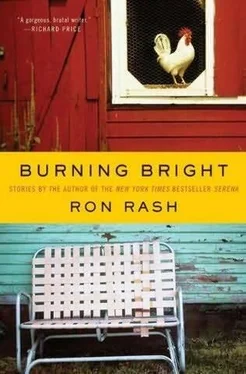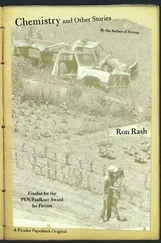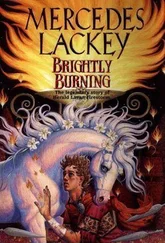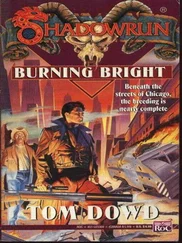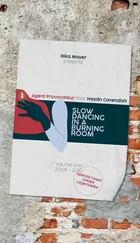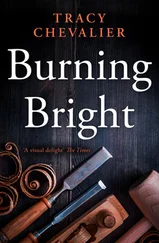“Did she take her back to the doctor?”
“Yes. The doctor gave her some antibiotics and took a strep culture.”
Allison twisted her body and turned to Boyd.
“You need to cut us some more wood this weekend, Daddy. There are only a few big logs left.”
Boyd nodded and let his eyes settle on the fire. Laura had wanted to switch to gas logs. Just like turning a TV on and off, that easy, his wife had said, and a lot less messy. Boyd had argued the expense, especially since the wood he cut was free, but it was more than that. Cutting the wood, stacking, and finally burning it gave him pleasure, work that, unlike so much of what he did at his job, was tactile, somehow more real.
Boyd was staring at the hearth when he spoke.
“I think Jennifer needs to see somebody else, somebody besides a family doctor.”
“Why do you think that, Daddy?” Allison asked.
“Because I think she’s real sick.”
“But she can’t miss Halloween,” Allison said. “We’re both going to be ghosts.”
“How can you know that?” Laura asked. “You haven’t even seen her.”
“I just know.”
Laura was about to say something else, then hesitated.
“We’ll talk about this later,” Laura said.
He waited until after supper to knock on the Colemans’ door. Laura had told him not to go, but Boyd went anyway. Jim Coleman opened the door. Boyd stood before a man he suddenly realized he knew hardly anything about. He didn’t know how many siblings Jim Coleman had or what kind of neighborhood in Chicago he’d grown up in or if he’d ever held a shotgun or hoe in his hand. He did not know if Jim Coleman had once been a churchgoer or had always spent his Sunday mornings working in his garage or yard.
“I’ve come to check on Jennifer,” Boyd said.
“She’s sleeping,” Jim answered.
“I’d still like to see her, if you don’t mind,” Boyd said, and showed Jim a sheet of paper. “I had Allison write down what they did in class today. She’d be real disappointed if I didn’t deliver this.”
For a moment Boyd thought he would say no, but Jim Coleman stepped aside.
“Come in then.”
He followed Jim down the hallway and up the stairs to Jennifer’s bedroom. The girl lay in her bed, the sheets pulled up to her neck. Sweat had matted the child’s hair, made her face a shiny paleness, like porcelain. In a few moments Janice joined them. She pressed her palm against Jennifer’s forehead and let it linger as though bestowing a blessing on the child.
“What was her temperature the last time you checked?” Boyd asked.
“One hundred and two. It goes up in the evening.”
“And it’s been four days now?”
“Yes,” Janice said. “Four days and four nights. I let her go to school Friday. I probably shouldn’t have.”
Boyd looked at Jennifer. He tried to put himself in her parents’ situation. He tried to imagine what words could connect what he’d witnessed in Madison County to some part of their experience in Chicago or Raleigh. But there were no such words. What he had learned in the North Carolina mountains was untranslatable to the Colemans.
“I think you need to get her to the hospital,” Boyd said.
“But the doctor says as soon as the antibiotics kick in she’ll be fine,” Janice said.
“You need to get her to the hospital,” Boyd said again.
“How can you know that?” Janice asked. “You’re not a doctor.”
“When I was a boy, I saw someone sick like this.” Boyd hesitated. “That person died.”
“Doctor Underwood said she’d be fine,” Jim said, “that plenty of kids have had this. He’s seen her twice.”
“You’re scaring me,” Janice said.
“I’m not trying to scare you,” Boyd said. “Please take Jennifer to the hospital. Will you do that?”
Janice turned to her husband.
“Why is he saying these things?”
“You need to leave,” Jim Coleman said.
“Please,” Boyd said. “I know what I’m talking about.”
“Leave. Leave now,” Jim Coleman said.
Boyd walked back into his own yard. For a few minutes he stood there. The owl did not call but he knew it roosted in the scarlet oak, waiting.
“Janice just called and she’s royally pissed off,” Laura told him when he entered the house. “I told you not to go over there. They think you’re mentally disturbed, maybe even dangerous.”
Laura sat on the couch, and she motioned for Boyd to sit down also.
“Where’s Allison?” Boyd asked.
“I put her to bed,” Laura said. “You know, you’re upsetting Allison as well as the Colemans. You’re upsetting me too. Tell me what this is about, Boyd.”
For half an hour he tried to explain. When Boyd finished his wife placed one of her hands over his.
“I know where you grew up that people, uneducated people, believed such things.” Laura said when he’d finished. “But you don’t live in Madison County anymore, and you are educated. Maybe there is an owl out back. I haven’t heard it, but I’ll concede it could be out there. But even so it’s an owl , nothing more.”
Laura squeezed his hand.
“I’m getting you an appointment with Doctor Harmon. He’ll prescribe some Ambien so you can get some rest, maybe something else for the anxiety.”
Later that night he lay in bed, waiting for the owl to call. An hour passed on the red digits of the alarm clock and he tried to muster hope that the bird had left. He finally fell asleep for a few minutes, long enough to dream about his grandfather. They were in Madison County, in the farmhouse. Boyd was in the front room by himself, waiting though he didn’t know what for. Finally, the old man came out of his bedroom, dressed in his brogans and overalls, a sweat rag in his back pocket.
The corpse bird’s call roused him from the dream. Boyd put on pants and shoes and a sweatshirt. He took a flashlight from the kitchen drawer and went into the basement to get the chain saw. The machine was almost forty years old, a relic, heavy and cumbersome, its teeth dulled by decades of use. But it still ran well enough to keep them in firewood.
Boyd filled the gas tank and checked the spark plug and chain lube. The chain saw had belonged to his grandfather, had been used by the old man to cull trees from his farm for firewood. Boyd had often gone into the woods with him, helped load the logs and kindling into his grandfather’s battered pickup. After the old man’s health had not allowed him to use it anymore, he’d given it to Boyd. Two decades had passed before he found a use for it. A coworker owned some thirty acres near Cary and offered Boyd all the free wood he wanted as long as the trees were dead and Boyd cut them himself.
Outside, the air was sharp and clear. The stars seemed more defined, closer. A bright orange harvest moon rose in the west. He clicked on the flashlight and let its beam trace the upper limbs until he saw it. Despite being bathed in light, the corpse bird did not stir. Rigid as a gravestone, Boyd thought. The unblinking yellow eyes stared toward the Colemans’ house, and Boyd knew these were the same eyes that had fixed themselves on his grandfather.
Boyd laid the flashlight on the grass, its beam aimed at the scarlet oak’s trunk. He pulled the cord and the machine trembled to life. Its vibration shook his whole upper body. Boyd stepped close to the tree, extending his arms, the machine’s weight tensing his biceps and forearms.
The scrub trees on his coworker’s land had come down quickly and easily. But he’d never cut a tree the size of the scarlet oak. A few bark shards flew out as the blade hit the tree, then the blade skittered down the trunk until Boyd pulled it away and tried again.
Читать дальше
